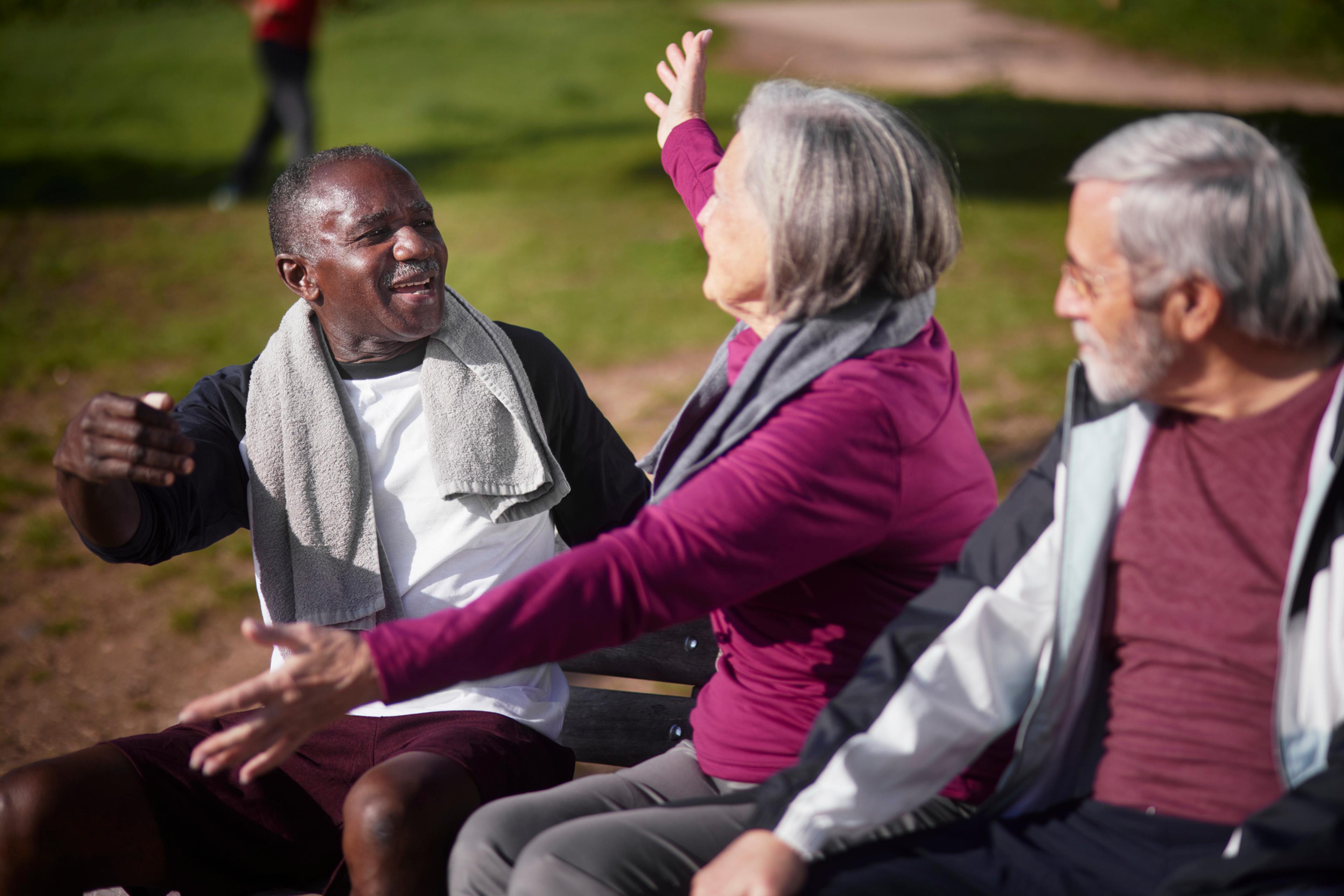Age With Confidence: Here’s What You Can Start Doing Today to Improve Your Health and Quality of Life for the Future

Jake Newby
| 5 min read
Jake Newby is a brand journalist for Blue Cross Blue...

Studies regularly find that most patients keep significant health information from their providers. As we age, it’s natural to want to avoid certain discussions with doctors. This is especially true for topics we find embarrassing, like incontinence, mental health, falling and problems with balance.
You are not the only one experiencing issues associated with aging. Blue Cross Blue Shield of Michigan is here to help you age with confidence. We want to empower you to engage in meaningful discussions with your doctor or other health care providers that get you one step closer to receiving the best health care possible. Being open and forthright about normal aging issues is critical, because many of them are treatable.
Here are some important tips and resources to keep in mind.
Be sure to schedule your Annual Wellness Visits (AWV) if you have a Medicare Advantage plan.
It’s important for everyone with a Medicare Advantage plan to schedule their annual wellness visit. Annual Wellness Visits (AWVs) are discussion-based visits designed to provide time for Medicare members to discuss issues that they may not get the opportunity to at other appointments, such as:
- Cognitive impairment, such as forgetfulness, difficulty making decisions, trouble concentrating, confusion, brain fog and irritability.
- Depression
- Exercise and physical activity
- Fall risk
- Urinary incontinence
Medicare AWVs present opportunities for members to get in front of their provider and talk about their wellness goals and symptoms they may experience related to the issues listed above. Members often schedule appointments to address specific illnesses or chronic conditions, which can dominate their doctor’s visits.
This is why AWVs are critical – they are no-cost appointments that give members an open forum to talk to about these often-overlooked topics.
Prioritize your mental health.
Your mental and physical health work together – when you address one, the other tends to improve as well. Increasing or maintaining your level of exercise or physical activity to benefit your mental health in addition to your physical health is a great example. In general, focusing on mental health is integral to aging well. When you do, you’ll feel better about your overall health and likely:
- Accomplish more in your day
- Participate in more social activities
- Start and stick with an exercise routine
- Commit to a healthy diet
Your AWV is a good time to be honest about how you’re feeling. If you’re experiencing higher levels of stress and anxiety, or you’ve felt depressed more often, help is available.
During your AWV, talk to doctor to find out if scheduling an appointment with a mental health professional is the best option for you. Visit bcbsm.com/seniorguide for more information about mental health, including care options for help now.
Talk with your health care provider about urinary incontinence treatment options.
Incontinence is one of those issues that is certainly not unique to you. In fact, according to the Urology Care Foundation, millions of people in the United States live with incontinence and bladder control symptoms.
Incontinence is a quality-of-life issue. It often leads to limiting activities, declining social invitations, avoiding travel and even avoiding exercise. The anxiety of trying to find bathrooms in unfamiliar places or needing assistance from someone when going to the bathroom can keep you from leaving the house, making it an issue that is detrimental to both your physical and mental health.
There are short and long-term options that can help, such as bladder training exercises, medications and even surgery, depending on severity. But the first step is to talk to your doctor about the options that are best for you, so you can get back to living your everyday life.
Talk with your health care provider about fall risks and prevention tips.
The U.S. Centers for Disease Control and Prevention (CDC) reports that approximately 36 million older Americans experience a fall each year, and one out of five falls cause serious injury. Fortunately, your provider can help reduce your chances of a preventable fall. As your health partner, they may:
- Recommend physical activity or physical therapy to build your strength and balance
- Review your current prescriptions and supplements that may cause dizziness and fatigue
- Provide ways to reduce household hazards, such as loose cords and detached rugs that could lead to a trip-and-fall accident
Work closely with your provider to help you stay safe from falls.
Make exercise and physical activity regular topics at your appointments.
As we age, getting healthy for the simpler things motivates us. This includes lifting a grandchild or pulling a heavy garden hose through the yard. Lifestyle tweaks to physical activity and exercise can help you feel your best.
Have a conversation with your provider about exercise and physical activity expectations. They may advise you to:
- Start a new exercise routine
- Maintain your level of exercise or physical activity
- Adapt exercises or physical activities to better suit you
Specifically, they may suggest certain measures that improve your physical activity, such as:
- Increase walking from 10 to 20 minutes
- Start taking the stairs more often
- Joining fitness classes in your area
- Joining online fitness class
- Doing gardening outside
Your providers want to know your concerns so they can help you.
Being open about all aspects of your health with your doctor and other health care providers can help your overall well-being.
Blue Cross and the Blue Care Network are committed to helping you age well and maintain your independence. Visit bcbsm.com/agehealthy to learn more about the topics discussed here and other aspects of healthy aging.
Keep reading:
Photo credit: Getty Images





